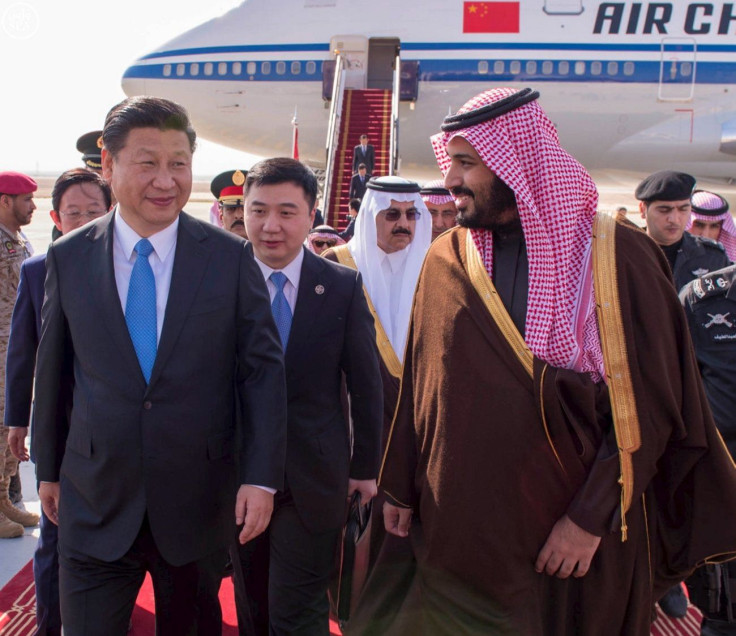Xi Jinping Mideast Visit 2016: Chinese President Lands In Saudi Arabia As China Seeks Stronger Ties With Region

Chinese President Xi Jinping arrived in Riyadh Tuesday, launching a three-country tour, four-day tour of the Middle East, as China aims to build up both political and economic ties with countries there. China issued its first official Arab Policy Paper Wednesday, which described itself as a "blueprint for China-Arab mutually beneficial cooperation, and reiterates the political will of commitment to peace and stability in the Middle East, in order to promote China-Arab relations to a new and higher level."
Xi's visit, which was scheduled to last from Tuesday through Saturday, will include visits to Egypt and Iran. The president was slated to spend the first two days in Riyadh, where he would hold talks with Saudi King Salman bin Abdulaziz Al Saud and meet with leaders of the Gulf Cooperation Council and the Organization of Islamic Cooperation.
Bilateral trade between Saudi Arabia and China has skyrocketed 230 times in the past 25 years, to $69.1 billion in 2014, Xinhua, the official Chinese news agency, reported. Saudi Arabia is currently China's top supplier of crude oil, while China, in turn, is Saudi Arabia's biggest trading partner.
During his scheduled visit to Egypt, Xi was slated to visit the Arab League headquarters to lay out China's policies towards development in the Middle East. As for Iran, his visit was aimed at ushering in "a new era of bilateral ties featuring comprehensive, long-term and stable development," Chinese Vice Foreign Minister Zhang Ming said Monday.
Xi's visit to Iran comes shortly after sanctions were lifted on Iran after the International Atomic Energy Agency declared that Tehran had abided by the terms of a nuclear deal, in whose negotiations China was involved, and cut back on its nuclear program.
"Different in natural endowment and development level, China and Arab countries are all in an important development stage," China's new policy paper said. "We need to collaborate with each other more closely, and learn from each other...so as to safeguard state sovereignty, independence and territorial integrity, and to promote stability, economic development and well-being of our peoples." Fields China envisioned cooperation on ranged from investment and trade to energy, infrastructure and healthcare, according to the paper.
It added that China would support "positive efforts" by Arab countries to "[curb] the spread of extremist thoughts and [fight] terrorism."
© Copyright IBTimes 2024. All rights reserved.












